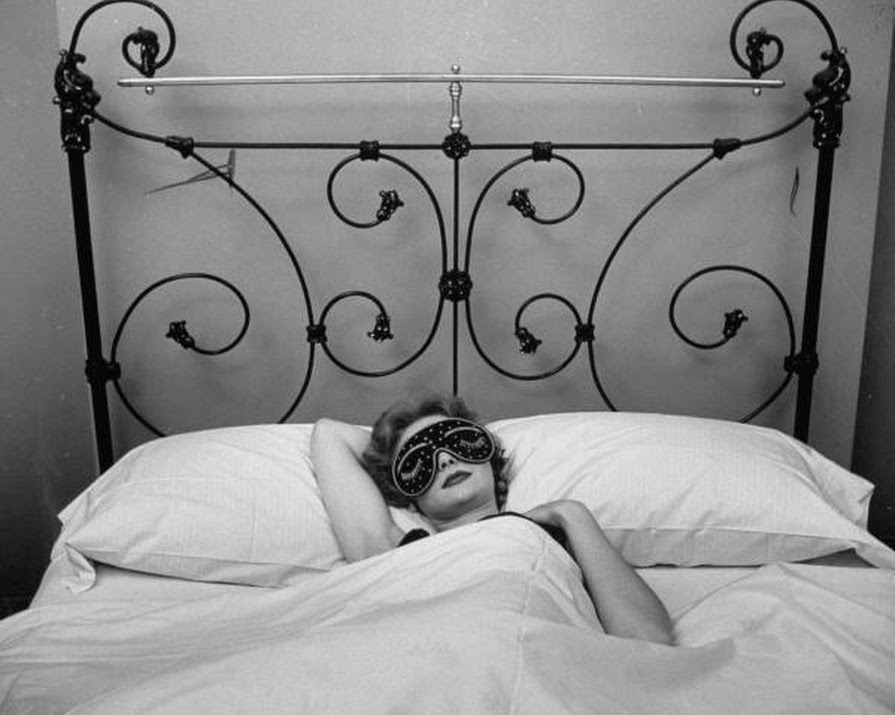By Bill O'Sullivan
09th Nov 2014
09th Nov 2014
woman sleeping in bed
A few natural tips to help you fall asleep
The importance of a good night’s sleep is almost taken for granted, we add it at the end of a sentence as a truism for minding your health. But the fact of the matter is that the we’re experiencing an epidemic of sleeplessness at the moment, with the latest research from the UK showing that 1 in 3 employees have sleep problems, and that most of us sleep around five hours a night. The reasons for this vary from our never-switched-off lifestyles, to vitamin deficiencies and bad habits. Here we suggest some simple solutions to get some shut eye.

Exercise Often the simplest solution to getting yourself to sleep can be exhausting yourself through exercise. Vigorous exercise should be taken in the morning and late afternoon, whilst yoga and stretching can help soothe and slow yourself down in the evening in preparation for bed
Natural supplements Melatonin is a natural hormone that helps regulate the sleep-wake cycle. It doesn’t only help you fall asleep, but it also reportedly improves the quality of your sleep. High levels of calcium and magnesium have also been proven to help with sleep, so taking supplements to maintain high levels can be a safe way to avoid restless sleep as a preventative measure. Other natural sleep remedies that reportedly assist with sleep include lavendar, chamomile and valerian, which all come either in the form of teas, sprays, or pills

Rituals Evidence shows that developing a routine around going to bed naturally prepares your body for sleep. Going to bed at the same time every night can be helpful, as well as making sure you associate your bedroom with sleep.
Bedroom etiquette It’s important to turn your bedroom into a place that triggers a near Pavlovian response in terms of sleep. It’s recommended to not work or exercise where you sleep, along with shutting out light properly, and turning off electronic devices that flash and emit tiny bits of light.
Don’t fight your sleeplessness If you feel like sleep won’t come, it’s probable that relaxing about it and accepting it is the best possible solution to it. A huge amount of anxiety and stress is caused by the anticipation and dread one feels before falling asleep. So much is taught about not bringing your demons to bed with you, that people often pre-empt things and start worrying about not being able to sleep. A possible solution could be to simply allow for sleep to be a bit of a problem and not add further stress to your already highly-strung self.
Eating An easy way of preparing for sleep is to avoid foods that contain caffeine from the afternoon onwards as their effects can last until bed time. Another simple solution is to not eat directly before bedtime, as it has the capacity to wake you up as well as being unhelpful for your digestion. Allow for at least two hours if not three between your evening meal and bedtime.
Roisin Agnew @Roxeenna























